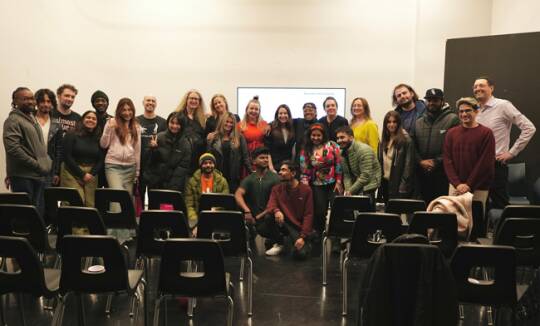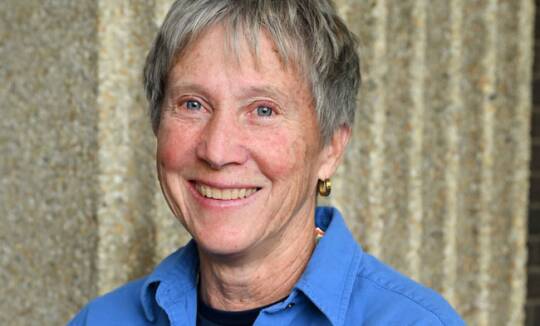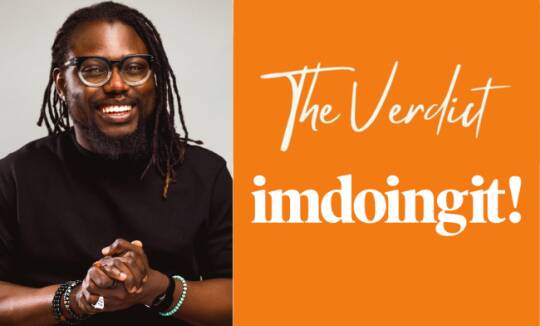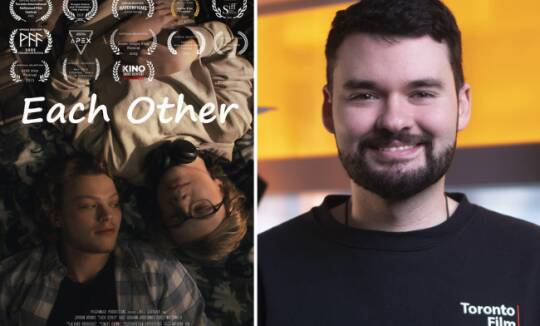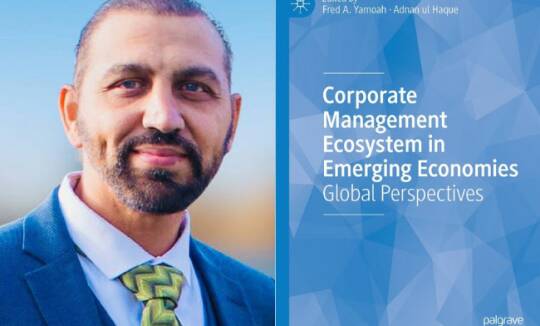When a student is focused on the end goal, getting their degree here at Yorkville University, and starting or advancing their career, they can sometimes question why they have to take general studies courses. But, in fact, General Studies courses are key to the broader goals of an undergraduate education.
In this article, instructors of general studies courses in the Bachelor of Business Administration discuss the value of the material they teach and why general studies are important to their students.
Instructor: Dr. Donald Leffers, MA, PhD Geography
Course: Geography 210, Human Geography

Human Geography is a wonderful ‘breadth’ course that spans a range of topics such as geopolitics, economics, environmental issues, cultural studies, demography, and urban studies. My students themselves have told me why taking Human Geography has been valuable to them. They are challenged to think more deeply about how people live in the world, especially a rapidly changing world. Human Geography allows students to learn about and better understand other cultures, religions, social practices, cities, and landscapes.
It also gives students a deeper understanding of how much the world is connected, yet also how important everyday experiences are to people as they live their daily lives in particular places. Human Geography can also inspire students to travel, to consider moving and working in different places around the globe, and to further their own knowledge, open-mindedness, and career opportunities. Taking Human Geography as an online course, in particular, opens up a number of unique opportunities for students.
Because students are often located in a variety of different places, they have an opportunity to bring their own experiences to the course, especially through weekly discussion forums, and to teach each other about different places and cultures in a very hands-on way.
Instructor: Alexandra Pett, PhD in English
Courses: Engl 250, Workplace in Fiction; Engl 230 Professional Writing
 Despite social media, many people in our culture experience emptiness and isolation. Completing work tasks without other sources of meaning leads to frustration and bitterness.
Despite social media, many people in our culture experience emptiness and isolation. Completing work tasks without other sources of meaning leads to frustration and bitterness.
As a society, we need to communicate much better with each other; globally, we also need to connect in solving overwhelming problems, including armed conflict. Becoming educated is the first step in understanding how to reach out to others.
As a professional educator who has taught from coast to coast in Canadian universities and colleges, I have worked with students in many career programs (including agriculture, visual communications, fine arts and painting, business, fashion merchandising, nursing, justice studies, public relations, journalism, and broadcasting). What my students tell me is that they need further training in the basics of writing in English; they want to know how to use the formats of workplace writing as well as how to use argument in both professional and personal worlds so that they can compose a proposal, write a letter, sent a memo, and present a long report to a variety of audiences.
The workplace fiction course introduces readers to constructions of work in short stories, novels, films, and journalism. The goal is to imagine ways of changing workplace identity and rewriting the narrative of life in work.
General studies courses teach thinking skills (analysis, synthesis, and comprehension of complex reading materials). They prepare students for life by teaching problem-solving and ask participants to consider such questions as who am I? what are my goals and values? how can I contribute to the world around me?
Overall, a student taking a general studies course will improve outcomes such as communication abilities (speaking, writing, reading, and listening) and extend imagination, compassion for others, understanding of cultural contexts, as well as moral and ethical choices. The value of a general studies course can be summed up this way: who you become as a person as a result of university education is the basis of the life you lead (and the job you will find).
Instructor: Denise Simanic
Courses: ENGL131: Research Composition, ENGL230: Professional Writing, SPCH235: Presentation Skills , PSYC300: Psychology, SOCI300: Sociology and Culture, HUMN422: Topics in Technology and Society
When we turned on the power of computing in our homes, businesses, schools, and especially smartphones, we unleashed the age of information. The expression, ‘knowledge is power,’ truly gave personalized meaning and new responsibilities to every individual as a worker and as a citizen.
Today’s employers are not looking for people who can simply do the job; they are looking for those who can turn data and information into real knowledge. To borrow from Dr Deming’s cycle of total quality management, this means that everything a business does now, it does well. When they hire you, they want it done better. They are looking for continuous improvement. To stay globally competitive in this ever changing world of instant information, businesses are looking for designers, managers, engineers, and financiers who can make a difference by introducing alternatives, innovation, creative thinking, and problem-solving. All this is gained from knowledge. All this is expected from you. The problem is how to distinguish information from misinformation and thereby provide accurate knowledge.
Yes, there is too much information and misinformation: from Internet Googling, to what’s on the news, to all advertisements (not just false ones), to deliberately vague product claims and a host of other profit-motivated, media-enabled, self-serving lies.
Now you ask, how is this connected to my general education courses? As a citizen, as a producer and as a consumer of this information, you have new responsibilities. You need to be able to wade through this ocean of information and find your own truth. The goal of these courses is to introduce you to the larger world – a global world where everything is connected; to prompt you to explore social, political, economic and personal issues that shape your community, work and personal world; to help you think outside the box and look for possibilities never conceived before; to help you expand your critical thinking skills and to show you how information can become knowledge.
In short, general education enables you to think as a whole person, not just as a worker.


